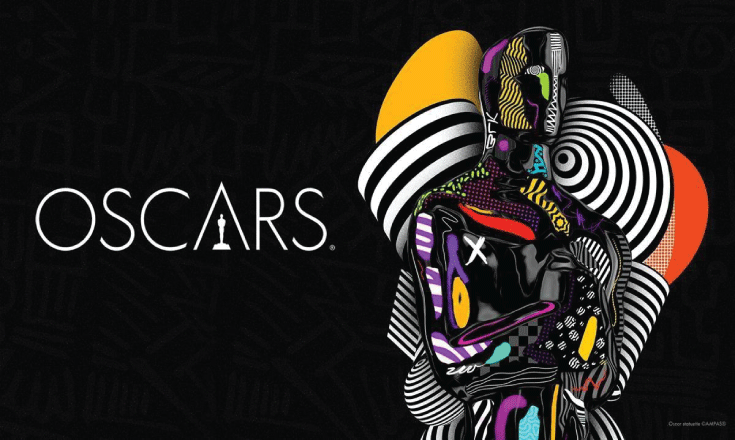Growing up, I loved The Oscars. Starting when I was around 13, so old enough for the context of most nominated films, I would watch every film nominated for Best Picture, often with a group of friends, usually in theater. My family would all watch the show together, or would attend a party with other families, including the pre-show. However, by my mid-20s award shows in general seemed less culturally relevant. The pre-shows, a parade of expense and excess, felt like a veneer over an increasingly problematic industry. In 2009, when the nominees for best picture increased from five to ten, the ability to see all the films became less accessible. Seeing movies in theaters was a luxury, and the aforementioned excess and expense of the ceremony seemed almost obscene. The Oscars failed to represent the cultural relevance I had attached to them when I was younger, and the racial and gender imbalances within the industry overshadowed the films being recognized. While some winners used their acceptance speeches to highlight political issues, often with a great deal of social blowback, others absolutely failed in tone. Conversations about race and gender were being shortcut, and popular films rarely lined up with nominations. In short, The Oscars had become this heavy, weighted way for the industry itself to engage in self indulgent ego stroking while ignoring the ways in which how people ingest media was changing.
And then, the pandemic happened.
This was the first time I had watched the Oscars since about 2015, and, for obvious reasons, it was a very different event. The scaled down event, with the pre-show and after parties stripped into minimalism, felt much more personal and intimate. Union Station in Los Angeles was converted into what looked like a dinner theater, rather than a massive concert hall. The mixture of in-person and remote attendance, and the lack of a traditional host, allowed for a very different flow than in previous years. Many have criticized the filming style and weirdness of the presentation, and I agree that the whole affair felt like an awkward Steven Soderbergh project, who helped produce the show. I liked the awkwardness, although sometimes the filming angles felt very off. The scaled down production allowed for more of a focus on the nominees, the speeches, the awards, and most importantly, the films. This version of The Oscars, stripped of highly produced performances and glamor, was a reminder of why these awards exist; for the love of cinema.
Of course, the award show itself was not without controversy; in fact, there was an expectation of controversy. Many felt that Chadwick Boseman was robbed of a posthumous Best Actor win for Ma Rainey’s Black Bottom. This also created a loss of momentum towards the end of the show; it was clear that Boseman was the predicted winner, leading the traditional order of awards to be changed to put the Best Actor and Actress awards at the end, after Best Picture had been awarded to Nomadland. This shift meant that, when Anthony Hopkins took the Best Actor award for The Father, his absence made the close of the show feel very flat. It’s still worth it to watch the end, if only for Glenn Close doing Da Butt dance.
More importantly, the setup at Union Station disrupted Covid vaccination and testing and closed streets which led to accessibility issues for disabled individuals. Despite warnings against using the venue, The Academy rolled ahead with the plan, demonstrating that for all the emphasis on social justice the industry still failed to protect the city and people who support and uphold that industry. As much as I love film, I think the question of if a large scale awards show of any type is necessary in a time of so much turmoil, and when so many are without basic necessities, is a valid one. Could the cost of creating this award show not be funneled into other services and needs?
Having not watched The Oscars in several years, I’m not sure how much more political and social justice discourse there was, but I am aware of how much more exposure to issues of racism, police brutality, and a lack of intersectionality there has been this year. From the opening remarks by Regina King, these issues remained at the fore. While I felt Tyler Perry absolutely deserved to win The Jean Hersholt Humanitarian Award, I felt that his attempt to seek a middle ground in his speech was on the tone deaf side.
Overall, I actually really enjoyed the show, even though I still think the question of why we have awards shows deserves to be culturally acknowledged. The absence of a single presenter, instead relying on fellow nominees and performers, brought the focal point back to the reason we have The Oscars at all. Changes in how films were nominated, including removing the rule that a film needed a theatrical run, allowed for more diversity and inclusion. This year, with all the isolation and fear we have experienced, we need diversions and personally, this was a year when I remembered how much I love and need cinema and film. The ability to watch all the nominations streaming, sometimes with viewing parties, was a very different feeling. Combined with the intimacy of the award show setting, that sense of the importance of how media impacts us was very clear. It was definitely an evening of hits and misses, however I really enjoyed the scaled back presentation. Are The Oscars really necessary? The jury is still out. Are The Oscars still culturally relevant? Absolutely. The 93rd Oscars is available in full on Hulu, and a full list of the nominees and winners can be found here.
Author

Morgan is a Seattle Central alumni currently attending Oregon State University where she is majoring in Anthropology. In addition to writing, she enjoys painting and linguistics. She lives in a very small house with a very fat cat.












Be First to Comment